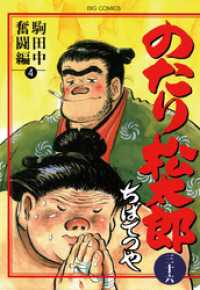- ホーム
- > 洋書
- > 英文書
- > Cinema / Film
Full Description
The films of Akira Kurosawa have had an immense effect on the way the Japanese have viewed themselves as a nation and on the way the West has viewed Japan. In this comprehensive and theoretically informed study of the influential director's cinema, Mitsuhiro Yoshimoto definitively analyzes Kurosawa's entire body of work, from 1943's Sanshiro Sugata to 1993's Madadayo. In scrutinizing this oeuvre, Yoshimoto shifts the ground upon which the scholarship on Japanese cinema has been built and questions its dominant interpretive frameworks and critical assumptions.
Arguing that Kurosawa's films arouse anxiety in Japanese and Western critics because the films problematize Japan's self-image and the West's image of Japan, Yoshimoto challenges widely circulating clichÉs about the films and shows how these works constitute narrative answers to sociocultural contradictions and institutional dilemmas. While fully acknowledging the achievement of Kurosawa as a filmmaker, Yoshimoto uses the director's work to reflect on and rethink a variety of larger issues, from Japanese film history, modern Japanese history, and cultural production to national identity and the global circulation of cultural capital. He examines how Japanese cinema has been "invented" in the discipline of film studies for specific ideological purposes and analyzes Kurosawa's role in that process of invention. Demonstrating the richness of both this director's work and Japanese cinema in general, Yoshimoto's nuanced study illuminates an array of thematic and stylistic aspects of the films in addition to their social and historical contexts.
Beyond aficionados of Kurosawa and Japanese film, this book will interest those engaged with cultural studies, postcolonial studies, cultural globalization, film studies, Asian studies, and the formation of academic disciplines.
Contents
Acknowledgements ix
Introduction 1
I Japanese Cinema in Search of a Discipline 7
II The Films of Kurosawa Akira 51
Kurosawa Criticism and the Name of the Author 53
Sanshiro Sugata 69
The Most Beautiful 81
Sanshiro Sagata, Part 2 89
The Men Who Tread on the Tiger's Tail 93
No Regrets for Our Youth 114
One Wonderful Sunday 135
Drunken Angel 138
The Quiet Duel 140
Stray Dog 147
Scandal 179
Rashomon 182
The Idiot 190
Ikiru 194
Seven Samurai 205
Record of a Living Being 246
Throne of Blood 250
The Lower Depths 270
The Hidden Fortress 272
The Bad Sleep Well 274
Yojimbo 289
Sanjuro 293
High and Low 303
Red Beard 332
Dodeskaden 334
Dersu Uzala 344
Kagemusha 348
Ran 355
Dreams 359
Rhapsody in August 364
Madadayo 372
Epilogue 375
Notes 379
Filmography 433
Bibliography 451
Index 471






